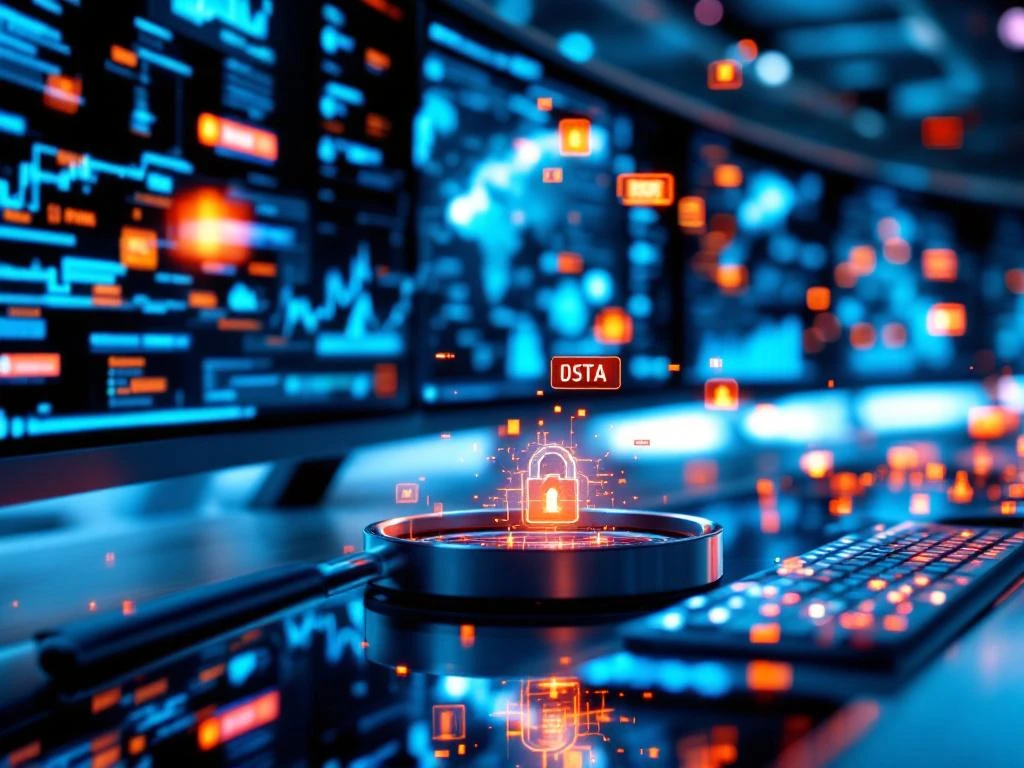

-
UK: +44 203 8876 770
US: 315 508 6500 - cybersecurity@thisisiceberg.com
-
8 Devonshire Square, London, EC2M 4YJ

Global tensions have fundamentally changed how organisations approach cybersecurity staffing. What used to be a straightforward technical hiring process has evolved into a strategic imperative driven by international conflicts, state-sponsored attacks, and rapidly shifting threat landscapes. Companies across banking, government, and technology sectors now recognise that their threat intelligence teams need different skills and deeper expertise than ever before.
The demand for threat intelligence professionals has surged as geopolitical cyber risks become more sophisticated and targeted. Organizations are discovering that their existing teams, built for traditional cybersecurity challenges, often lack the specialised knowledge needed to defend against nation-state actors and politically motivated threat groups. This shift is creating new hiring patterns and forcing companies to rethink how they build resilient security capabilities.
International tensions directly translate into increased cybersecurity hiring across multiple sectors. When geopolitical relationships deteriorate, organisations face heightened risks from state-sponsored attack groups that target critical infrastructure, financial institutions, and government agencies. These sophisticated threat actors operate with resources and persistence that far exceed traditional cybercriminals.
| Sector | Primary Threats | Key Hiring Focus |
|---|---|---|
| Banking | Economic sanctions exploitation, financial system attacks | Analysts understanding sanctions and trade war implications |
| Government Contractors | Nation-state espionage, data theft | Specialists with security clearances and APT experience |
| Technology | Supply chain attacks, IP theft | Regional expertise and international operations knowledge |
| Law Firms | Foreign intelligence targeting | Legal-cyber intersection specialists |
The technology sector has seen demand spike for professionals who understand supply chain attacks and intellectual property theft campaigns. Companies with international operations need threat intelligence teams that can assess risks across different regions and understand how local political situations might affect their security posture.
Different industries respond to geopolitical cyber threats with distinct hiring approaches:
Many existing threat intelligence teams were designed for a different threat environment. They focus on technical indicators and traditional cybercriminal activities rather than the complex, multi-stage campaigns that characterise geopolitical cyber operations.
Key limitations include:
Traditional threat intelligence often focuses on reactive analysis rather than predictive assessment. Teams spend significant time cataloguing past attacks but struggle to anticipate how changing geopolitical conditions might create new threats. Many teams also lack the language skills and cultural knowledge needed to monitor threat actor communications and understand regional cyber threat developments.
Modern threat intelligence roles require a unique combination of technical expertise and geopolitical awareness. The most valuable professionals possess:
| Skill Category | Specific Capabilities | Business Value |
|---|---|---|
| Technical + Strategic | Malware analysis with campaign understanding | Connect attacks to broader conflict patterns |
| Language Skills | Multi-language threat monitoring | Early warning of planned attacks |
| Communication | Technical-to-business translation | Executive decision support |
| Historical Experience | Multi-incident pattern recognition | Proactive defence preparation |
Cross-functional communication skills distinguish the most effective threat intelligence professionals. They can translate complex technical findings into business risk assessments that executives and board members can understand and act upon.
Critical expertise areas include:
Reading about how geopolitics is reshaping threat intelligence teams? Many hiring managers we work with face similar challenges in building the right cybersecurity capabilities. What's driving your interest in this topic?
Geographic location significantly influences how organisations approach threat intelligence hiring:
| Region | Primary Threat Focus | Preferred Candidate Experience |
|---|---|---|
| Europe | Russian and Eastern European groups | GDPR compliance + threat analysis |
| Asia-Pacific | Chinese state-sponsored, North Korean operations | Regional political understanding |
| Middle East | Regional conflict-driven cyber operations | Security clearances + government experience |
| North America | Foreign intelligence targeting domestic operations | Public-private partnership experience |
Different regulatory environments create distinct hiring requirements. European organisations need GDPR and NIS2 directive compliance expertise, while financial services companies require professionals who understand sector-specific regulations and incident response procedures.
Effective threat intelligence teams require careful attention to composition and skill diversity. Key elements include:
While automated tools process large threat data volumes, human expertise remains essential for understanding geopolitical cyber threat context. Successful teams use technology for routine analysis while focusing human analysts on complex pattern recognition and strategic assessment.
Regular assessment and adjustment of team capabilities helps organisations identify gaps and adapt to changing requirements. This might involve bringing in external consultants for specialised projects, evaluating professionals with different backgrounds, or developing new partnerships to access specific expertise.
The intersection of global tensions and cybersecurity hiring has created both challenges and opportunities for organisations across all sectors. Companies that successfully adapt their threat intelligence capabilities to address geopolitical cyber risks will be better positioned to protect their operations and maintain competitive advantages.
Building effective threat intelligence teams requires understanding how geopolitical developments affect your specific industry and region, then hiring professionals with the right combination of technical skills and strategic awareness. The investment in specialised talent pays dividends through improved threat detection, better risk assessment, and more effective incident response capabilities.
At Iceberg, we understand these evolving requirements and help organisations across 23 countries build threat intelligence capabilities that match their specific risk profiles. Our network of over 120,000 cybersecurity professionals includes specialists with the geopolitical awareness and technical expertise that modern threat intelligence teams require.
If you are interested in learning more, reach out to our team of experts today.













